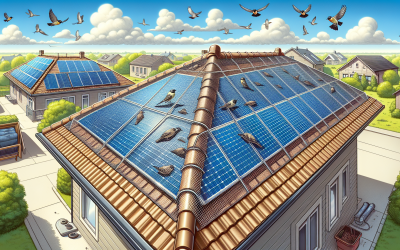Introduction
As the world continues to grapple with the effects of climate change, the need for renewable and sustainable energy sources has never been more critical. Solar energy, harnessed through solar panels, is one such solution that’s not only environmentally friendly but also cost-effective in the long run. But did you know that not all solar panels are created equal? There are different types of solar panels, each with its unique features, benefits, and drawbacks.
Whether you’re considering installing a solar system for the first time or looking to upgrade your existing one, understanding these differences is crucial. It will help you make an informed decision that best suits your energy needs and budget. As Brisbane’s leading solar repair specialists, we’re here to guide you through the various types of solar panels available in the market today.
Quick Summary
The three main types of solar panels are monocrystalline, polycrystalline, and thin-film. Each type varies in efficiency, cost, appearance, and installation requirements. Understanding these differences will help you choose the right solar panel type for your needs.
Monocrystalline Solar Panels
Monocrystalline solar panels are known for their high efficiency and sleek, uniform appearance. They are made from a single crystal structure, which allows electrons to move freely and generate a higher amount of electricity. This makes them an excellent choice for homeowners with limited roof space.
However, monocrystalline panels are also the most expensive type of solar panels due to the complex manufacturing process. They also tend to perform less efficiently in high temperatures, which is something to consider if you live in a particularly hot climate.
Polycrystalline Solar Panels
Polycrystalline solar panels, on the other hand, are made from multiple crystal structures. This makes them less efficient than monocrystalline panels but also more affordable. They have a blueish hue and a somewhat less uniform appearance, which some homeowners may find less aesthetically pleasing.
While they perform slightly less efficiently than monocrystalline panels, polycrystalline panels offer a good balance between cost and performance. They’re a popular choice for large-scale installations where space is not an issue.
Thin-Film Solar Panels
Thin-film solar panels are the newest type of solar panels. They’re made by depositing several thin layers of photovoltaic material onto a substrate. This process makes them the most affordable option, but also the least efficient.
The main advantage of thin-film panels is their flexibility, which allows for a wider range of applications. They can be installed on curved surfaces or integrated into building materials, making them an excellent choice for innovative architectural designs.
Choosing the Right Solar Panel Type
- Consider your energy needs: If you have high energy consumption, you might want to opt for more efficient panels like monocrystalline.
- Take into account your budget: If you’re on a tight budget, polycrystalline or thin-film panels might be a better option.
- Think about your available space: If you have limited roof space, high-efficiency panels like monocrystalline can help you get the most out of your installation.
Remember, it’s not just about choosing the right type of solar panel. Regular solar panel cleaning and maintenance are also crucial to ensure your system performs at its best. If you’re unsure about what type of solar panel to choose, don’t hesitate to consult with a solar electrician in Brisbane.
Conclusion
Understanding the different types of solar panels is the first step towards harnessing the power of the sun. Whether you choose monocrystalline, polycrystalline, or thin-film panels, remember that each type has its unique features and benefits. The best choice will depend on your individual energy needs, budget, and available space.
At Solar Repair Brisbane, we’re committed to helping you make the most of your solar investment. From understanding different types of solar panels to providing top-notch solar panel repairs and maintenance, we’ve got you covered. Contact us today for all your solar needs.
For more information on solar energy and its benefits, check out this comprehensive guide by the Clean Energy Regulator.





